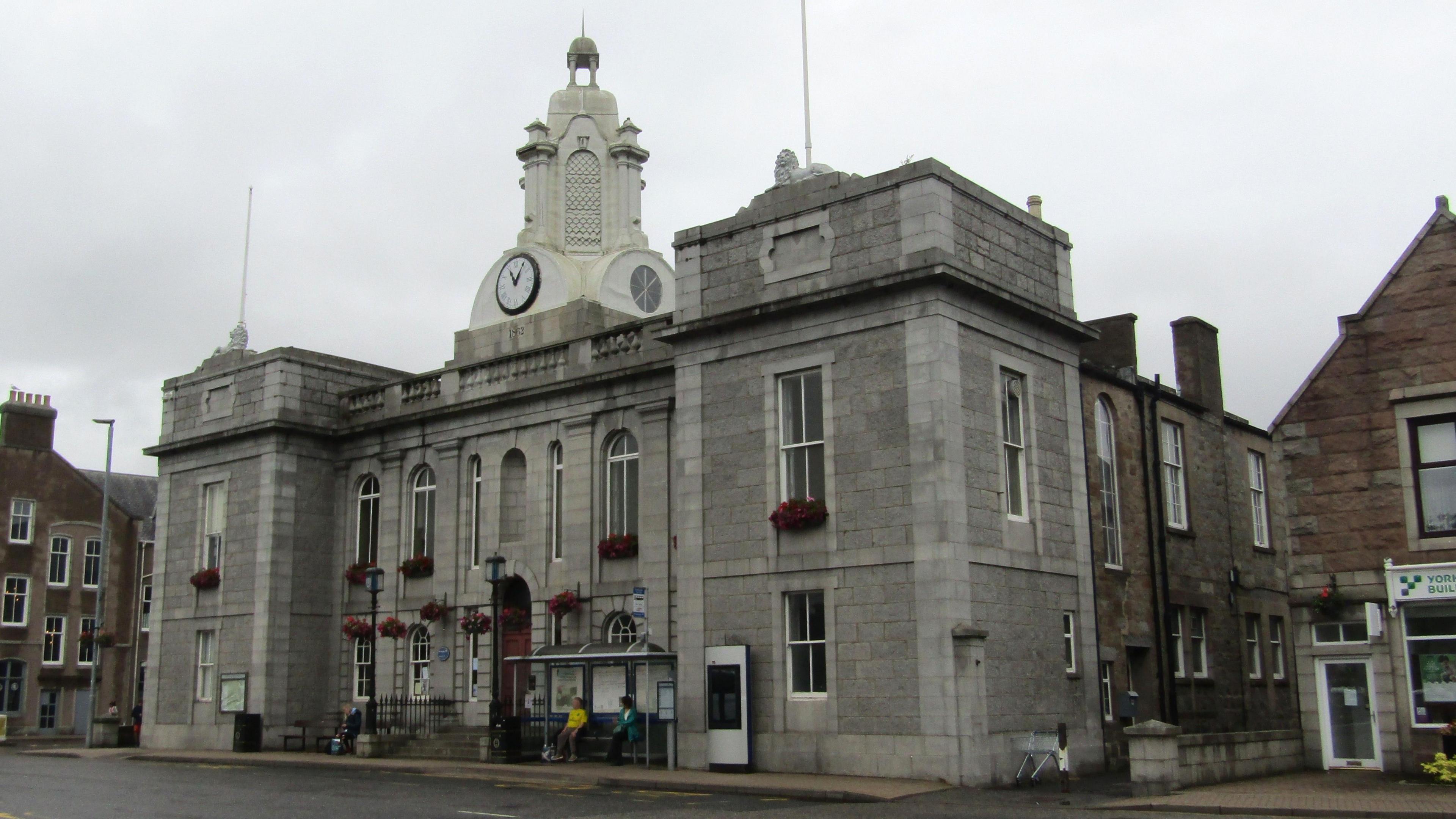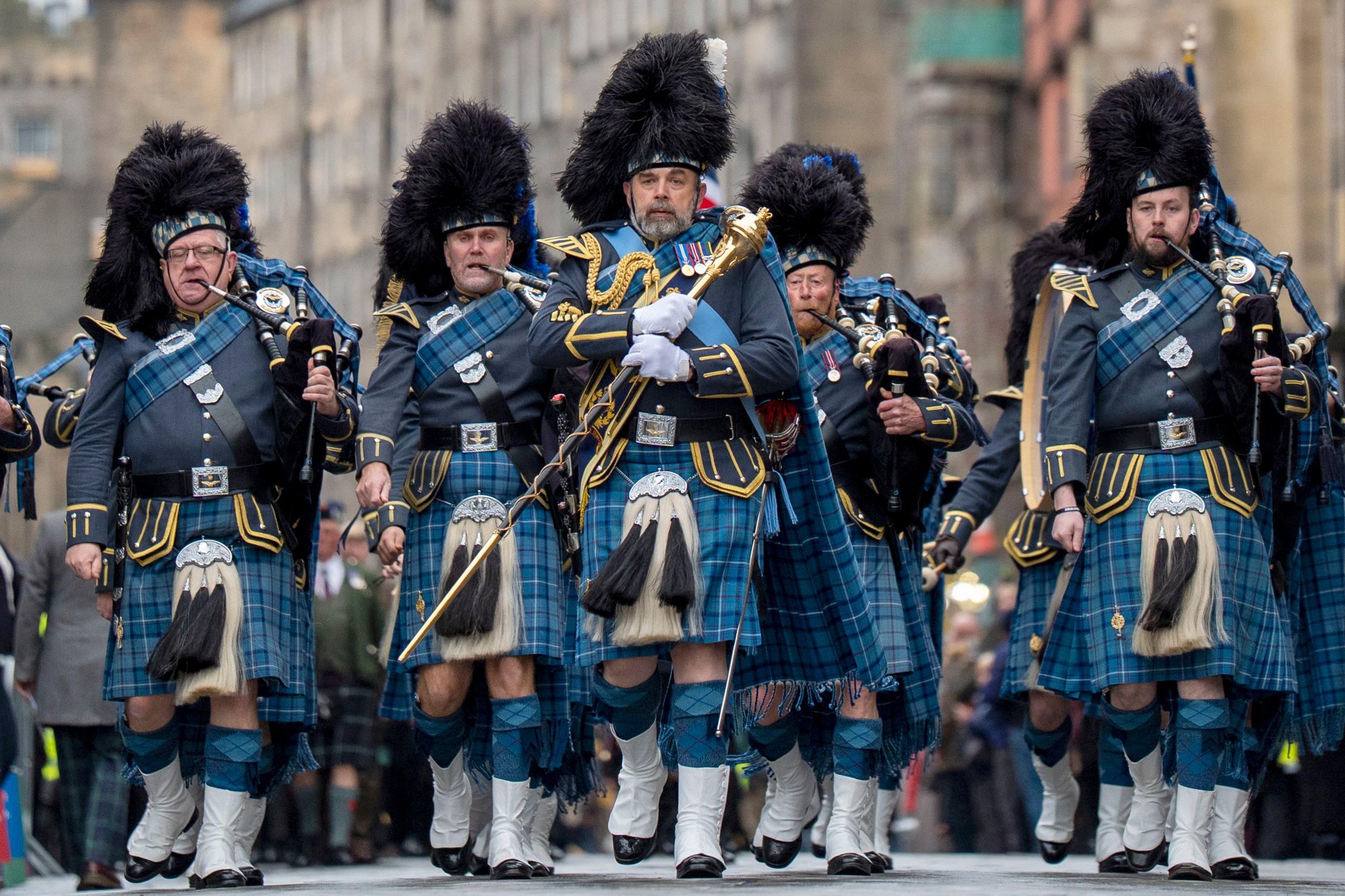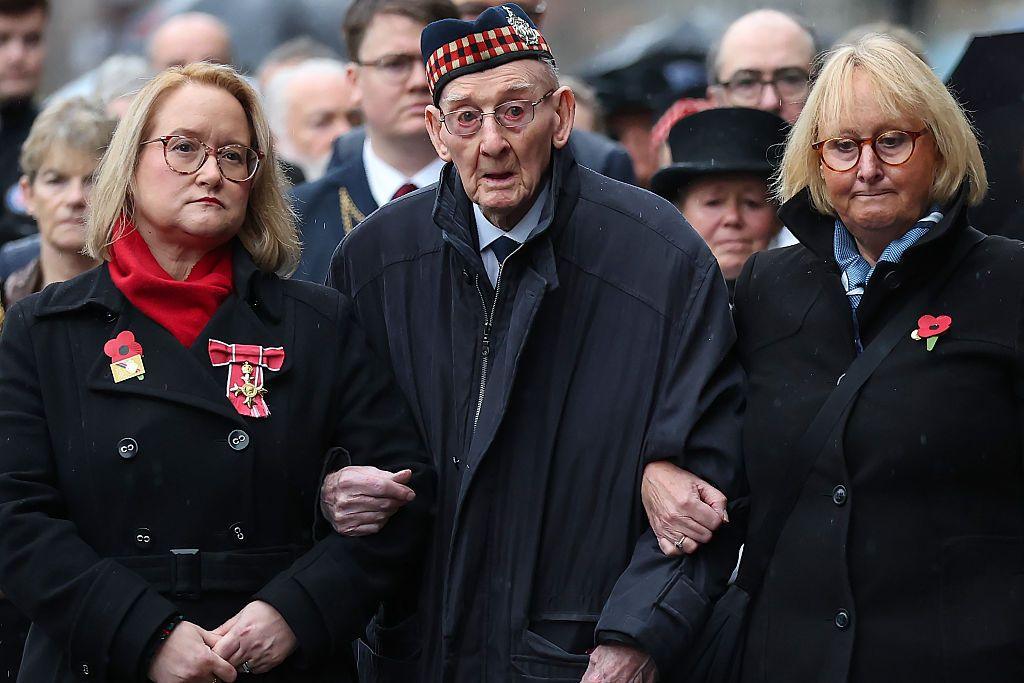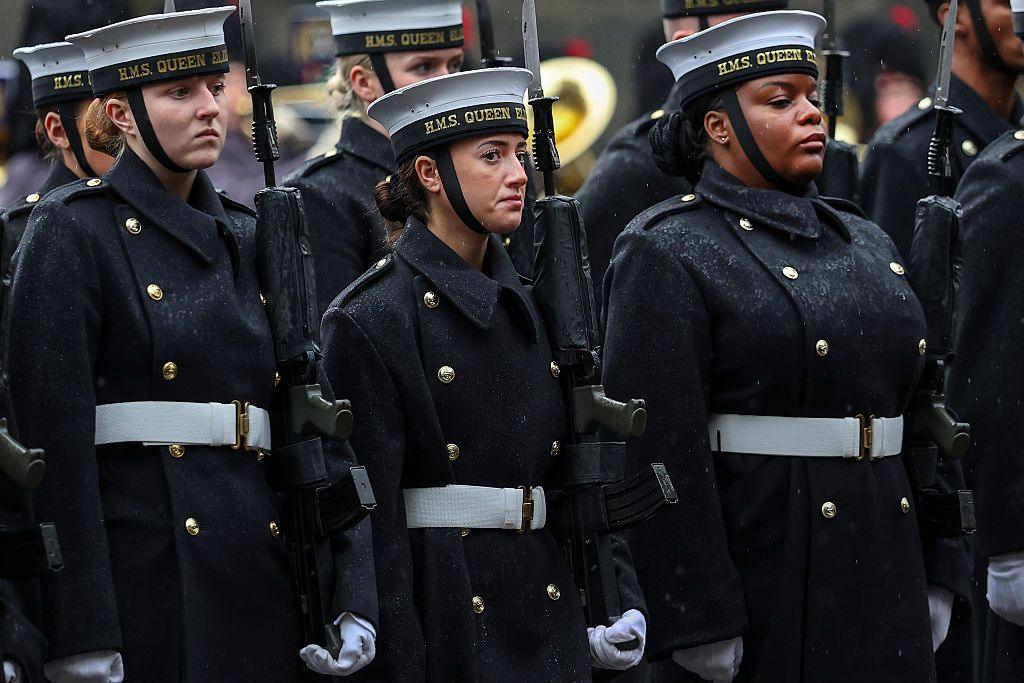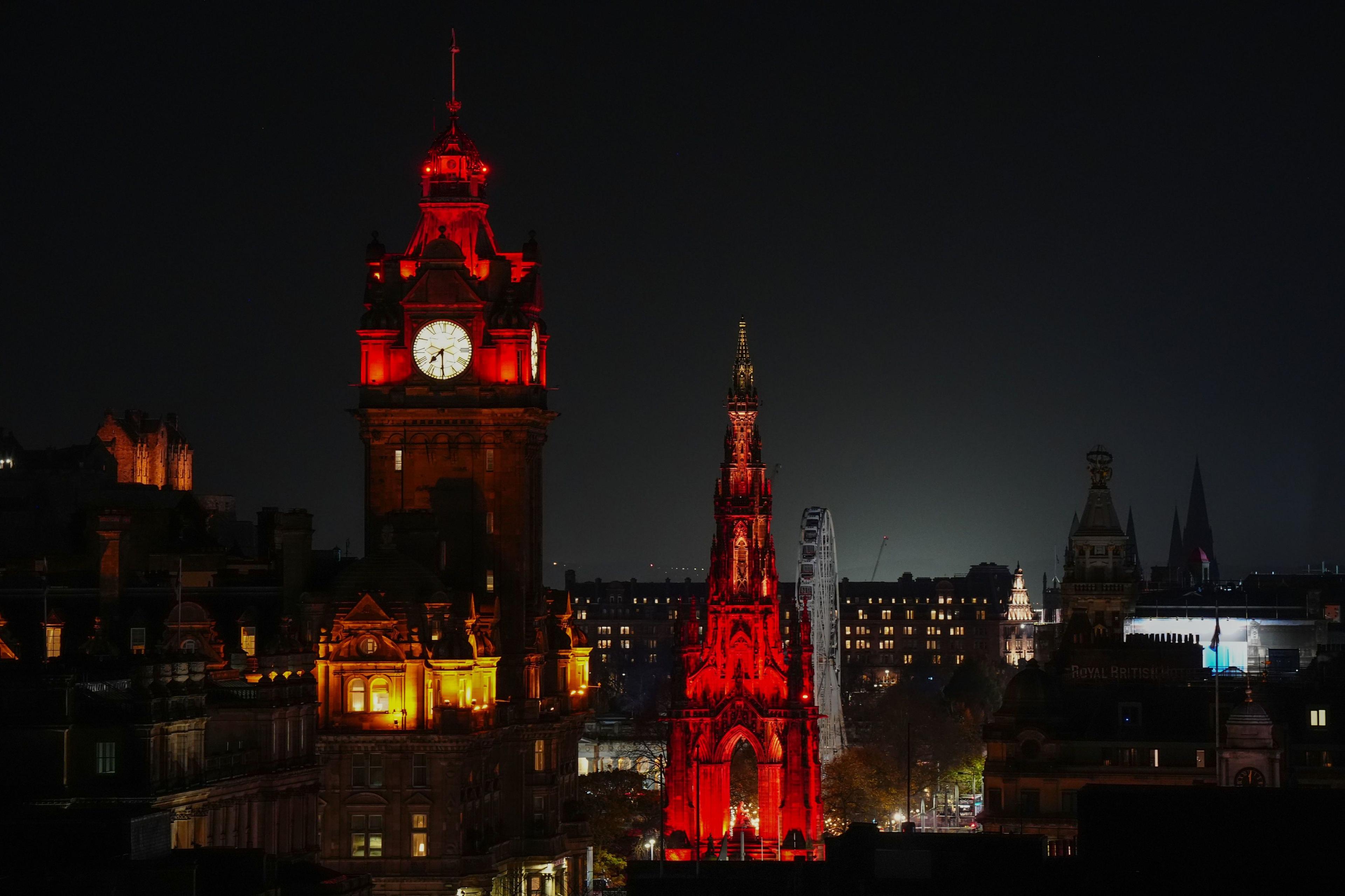Scotland falls silent for war dead on Remembrance Sunday
Events were held across Scotland to mark Remembrance Sunday
- Published
People across Scotland have commemorated those who lost their lives in the two world wars and later conflicts.
First Minister John Swinney laid a wreath at Edinburgh City Chambers following the traditional two minutes of silence at 11:00 GMT.
He was joined by Holyrood's presiding officer Alison Johnstone, Scottish Secretary Douglas Alexander, Edinburgh's Lord Provost Robert Aldridge, and veterans and service members.
King Charles also led the nation in a two-minute silence during the National Service of Remembrance at the Cenotaph monument in central London.
Representatives from Commonwealth countries attended the wreath-laying ceremony, alongside various faith leaders.
An estimated three million soldiers and labourers from the Commonwealth joined the allied forces in World War One, while a further 4.5 million fought in World War Two.
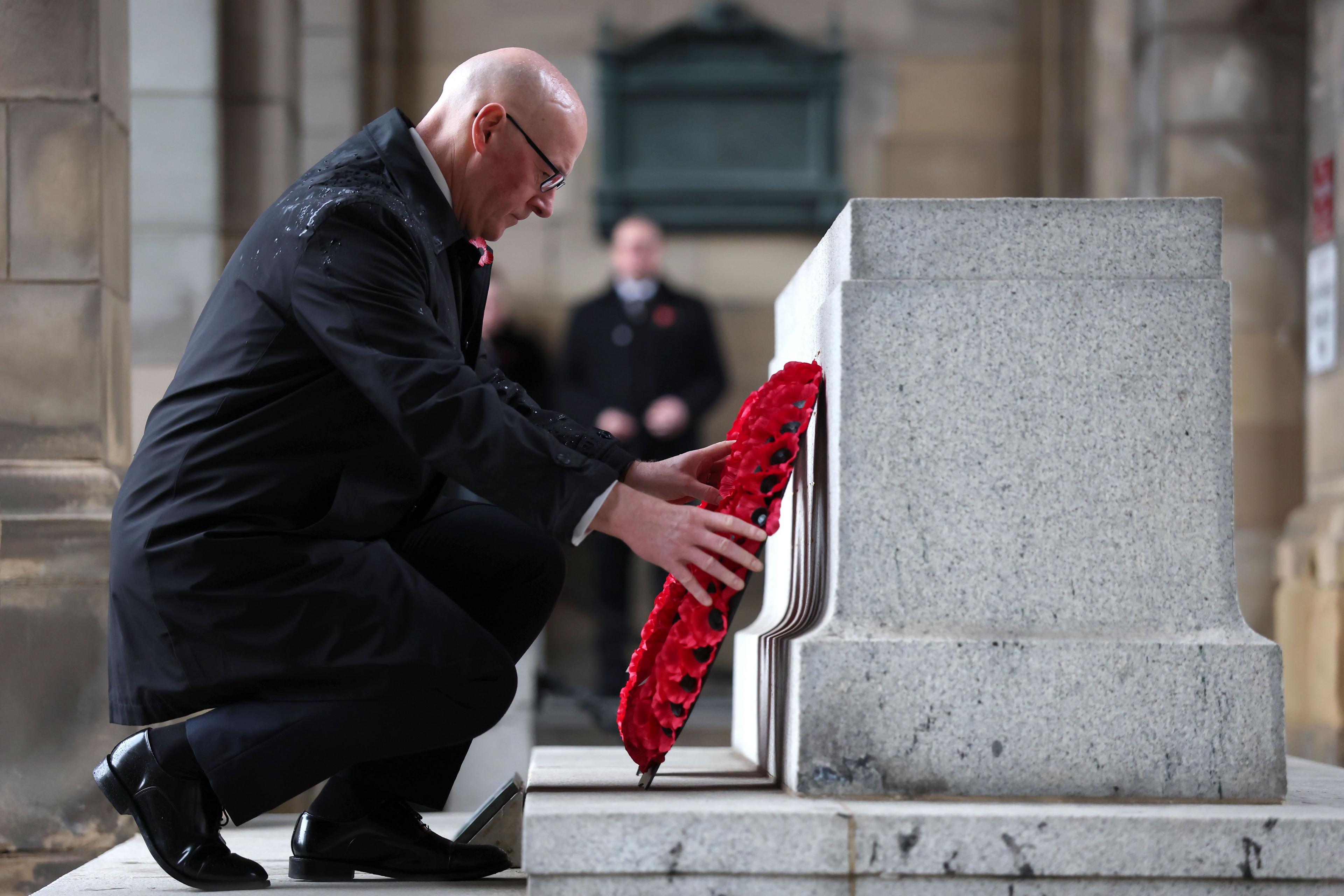
Swinney was first to lay a red wreath of poppies on the Stone of Remembrance - the war memorial at the entrance to Edinburgh City Chambers on the Royal Mile.
Reflecting on how the service in Edinburgh had included a large number of young people, he said it was important for all generations to understand sacrifices made during world conflicts.
He told the BBC: "I always think of those who have lost their lives, who have sacrificed for our freedom and for our liberties today.
"It's so important that we pause to reflect on all of the challenges that we face in the world today and remember the sacrifices that were made by others to make sure that we can live in peace and freedom and security, and that we never take that for granted."
'Keep their memory alive'
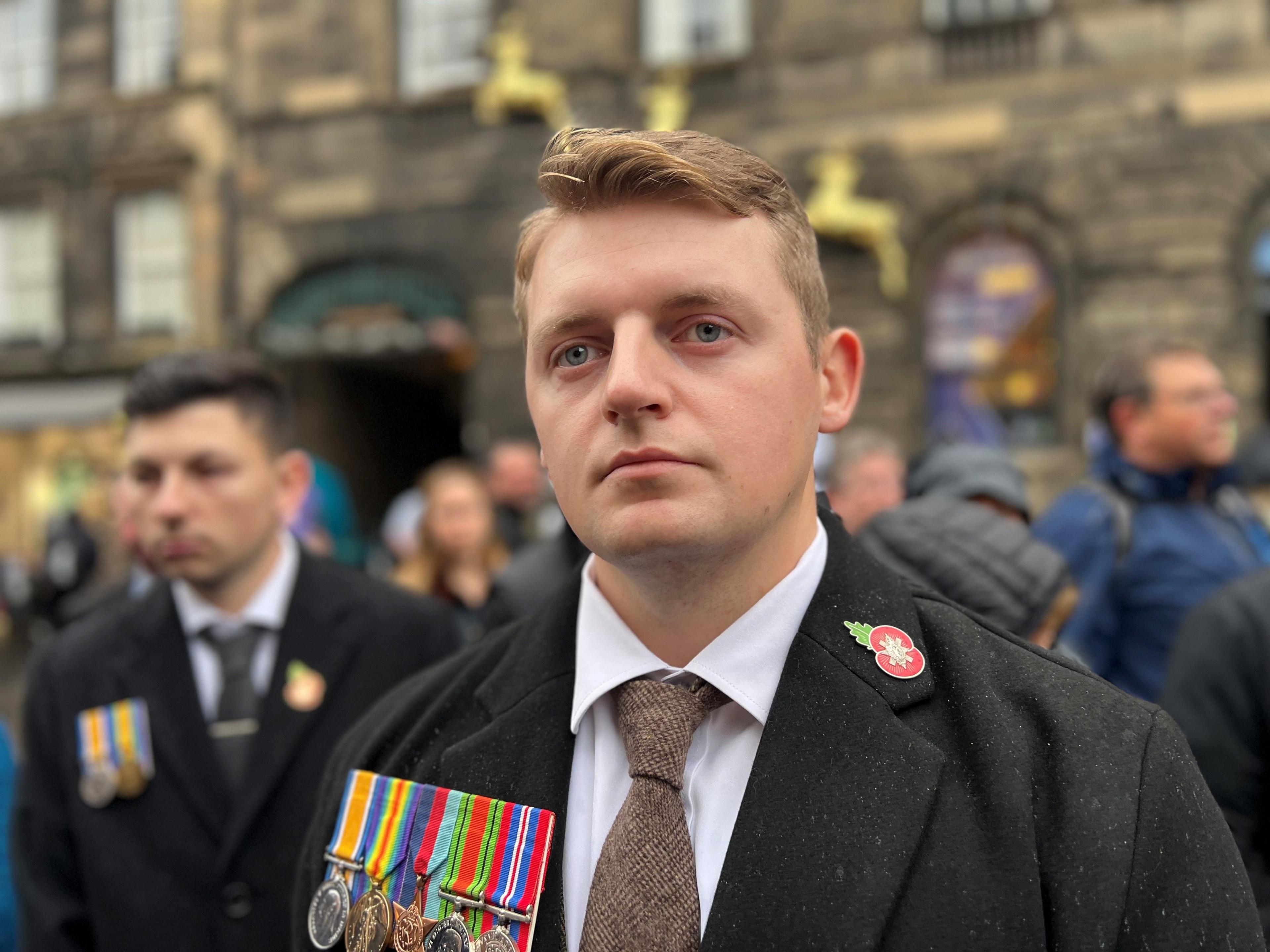
James Mitchell spoke of his 40 family members who served in the first and second world wars
James Mitchell, 27, attended the ceremony in Edinburgh wearing the medal of his various family members who served during the first and second world wars.
He told the BBC he had about 40 relatives in the British forces, many of whom did not survive.
His great-great-grandfather was wounded during the evacuation of Dunkirk, but managed to get out alive. His five sons also served, one of whom was captured by Japanese forces in Hong Kong.
"That alone is a terrible story and the brutality in the treatment that these men went through is the reason why we need to make sure that these stories continue," James said.
"I just find it's very important to keep their memory alive, especially in this day and age because a lot of the memories and stories have been forgotten."
James believes that people of his age should look to older generations as a source of inspiration, rather than "so-called" influencers.
He said: "I'm only 27 years old. Me and my friend… we're some of the youngest ones here voluntarily and it's a shame because some of the stories that you hear are incredibly inspirational."
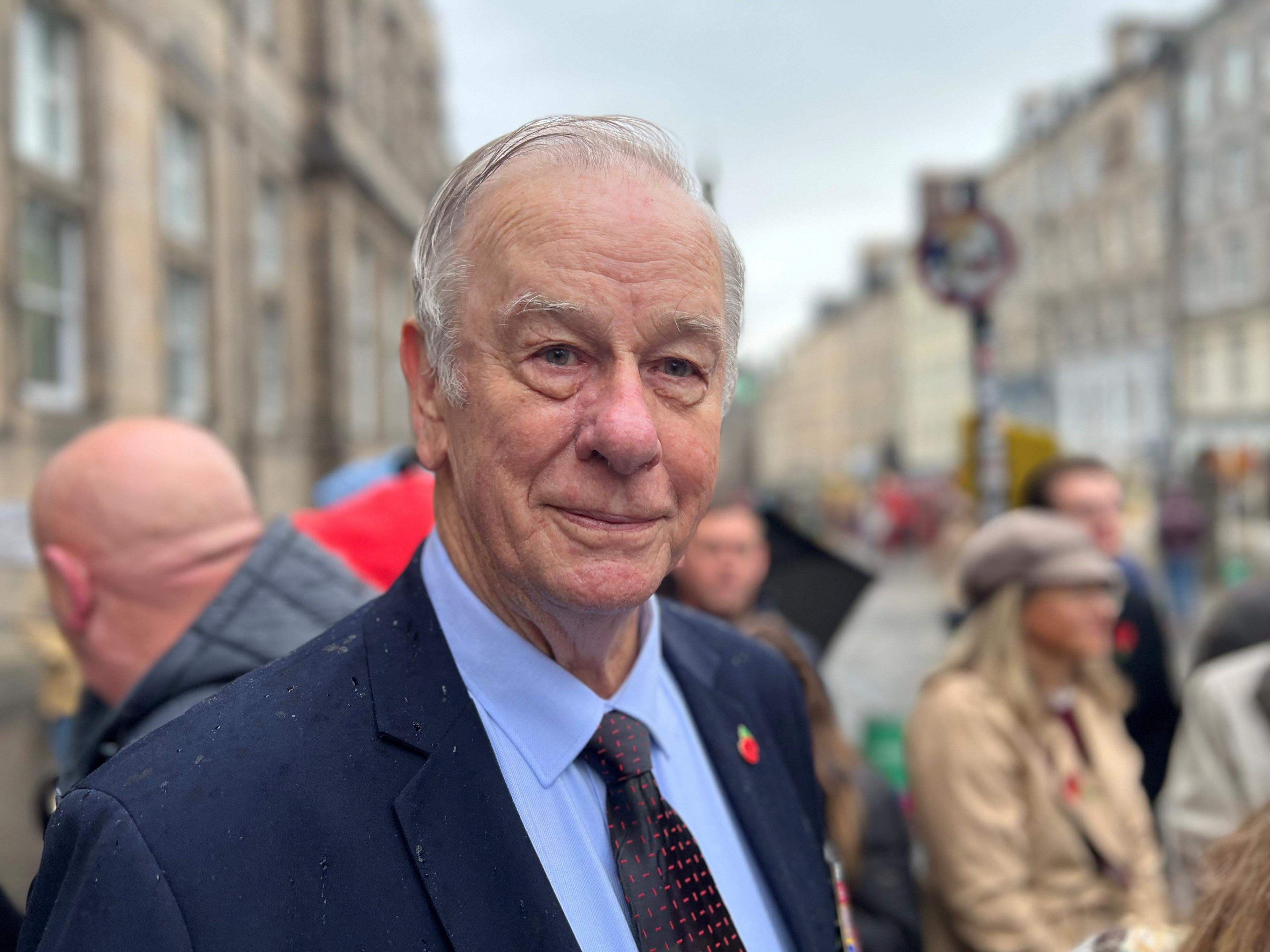
Bill Watson travelled to Edinburgh from Australia
Australian Bill Watson, whose family also has had a long military history, spent 35 years in the Australian air force, and his father served in both world wars.
He wore a medal to the service belonging to his grandfather, who he said "lasted 24 hours" at the Battle of the Somme.
The Somme was one of the most deadly battles ever fought, with more than one million people killed or wounded, in July 1916.
The aim of the battle was to relieve the important northern French fortress of Verdun which had been placed under siege by the German army since February of that year.
"I feel at this stage I probably owe it to my dad and my grandad to think about them occasionally," Bill said.
- Image source, Getty Images
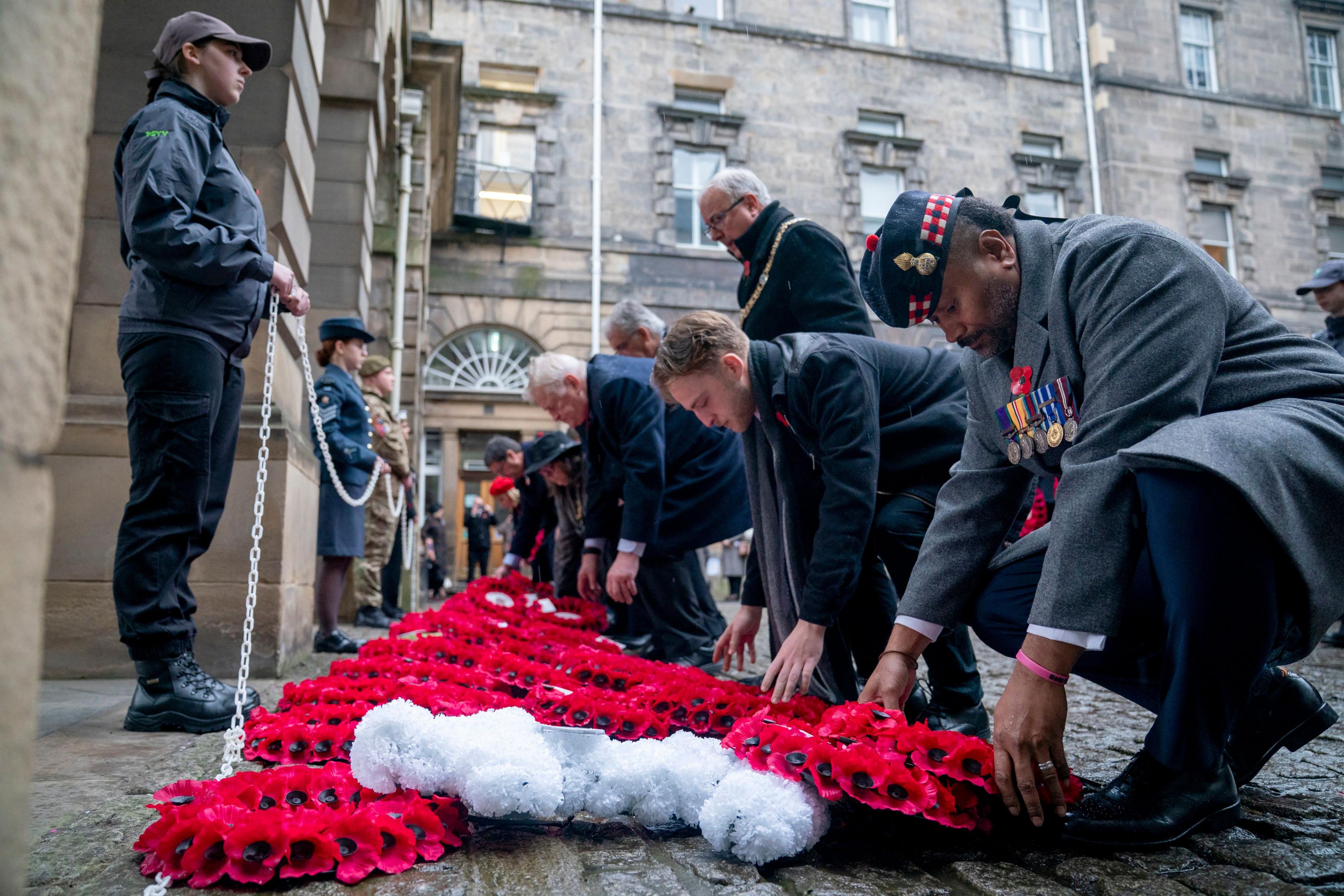
1 of 5
Meanwhile in Glasgow, the usual wreath-laying ceremony at the cenotaph on George Square was moved to Glasgow Cathedral this year while construction work takes place.
Military personnel, veterans and bands carried out a short parade before a service at Glasgow Cathedral, led by Rev Mark Johnstone.
He spoke of "human dignity" and how it is "not simply tolerance or inclusion - it is the recognition that each human life carries the image of god".
"The young soldier who fell in Flanders Field, the refugee terrifyingly crossing the ocean with nothing but hope, the child in the Middle East, the mother on the edge of Europe, the teacher in Africa, the medic in the rugged spine of Asia... each today is worthy of remembrance," he said.
"So today, as the bells of Glasgow Cathedral ring out over this city, may they echo not only with the past, but call us forward to a future worthy of the name.
"As these bells ring out, let us build a Glasgow where dignity is not a privilege, but a right. Where peace is not the absence of war, but the presence of compassion."
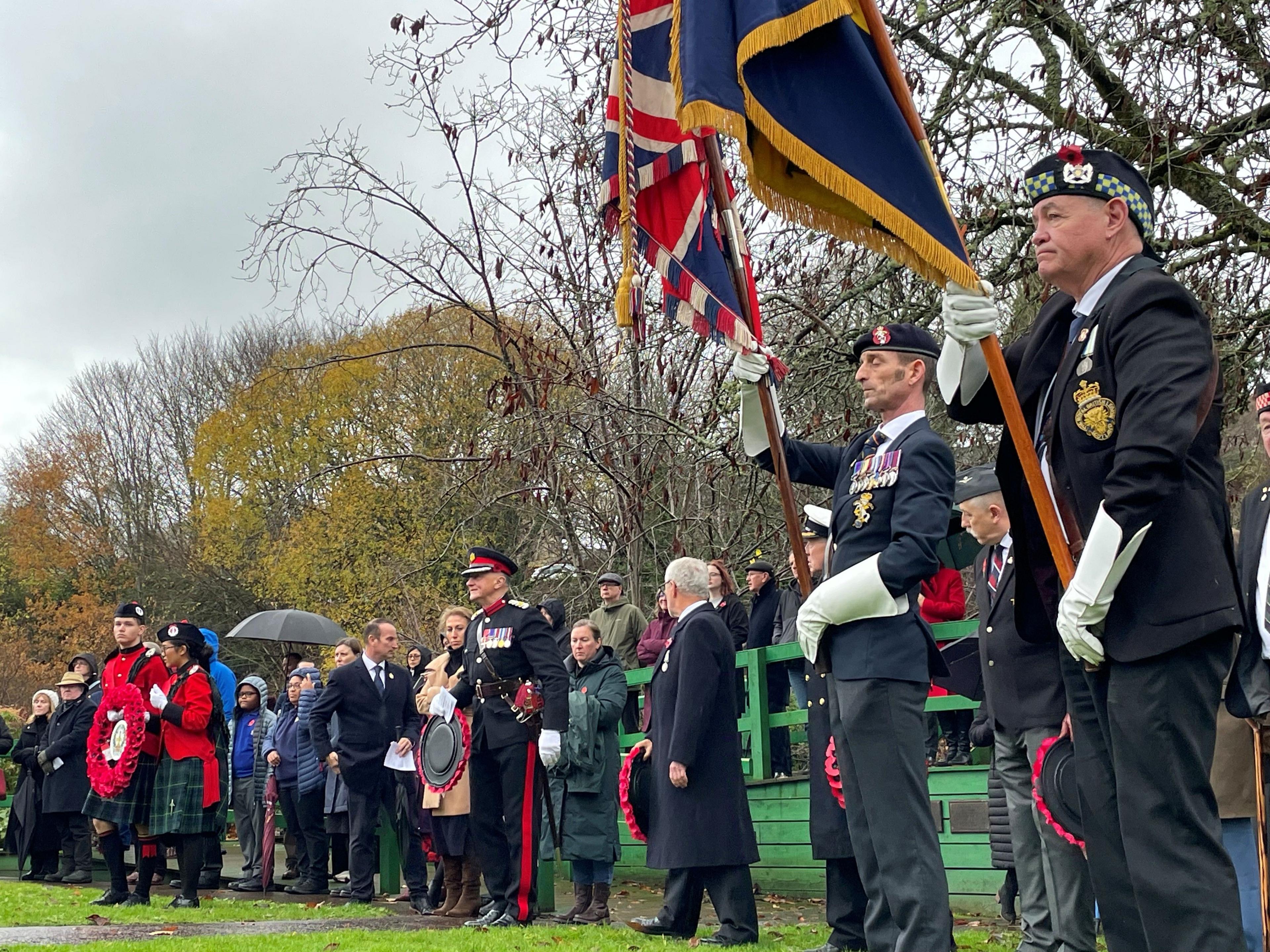
A ceremony was held at the war memorial in Dunblane
Services were held across Scotland, including in Dunblane, Oban and Inverness.
Remembrance Day, or Armistice Day, is on Tuesday this week, marking the day World War One ended on 11 November 1918.
- Published9 November
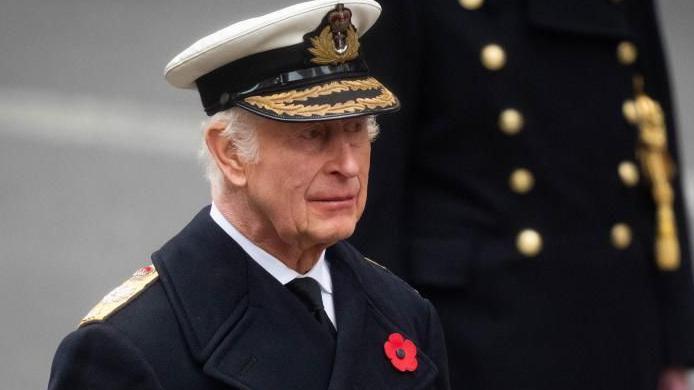
- Published30 October
